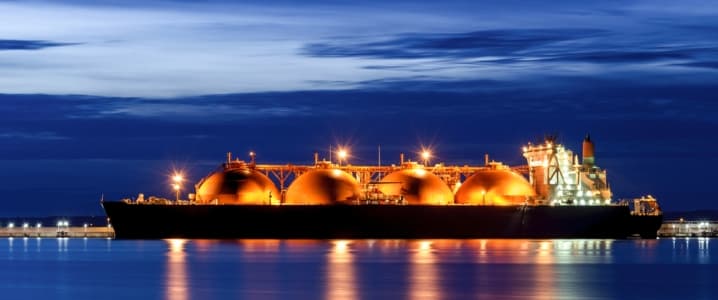On April 9 PNG’s government signed an agreement with Total, ExxonMobil and the Australian Securities Exchange-listed Oil Search, setting out the terms and conditions for the development of the $13bn Papua LNG project.
The project will use gas supplied from the Elk-Antelope fields located in the Gulf Province, which were first drilled in 2006 and are estimated to contain reserves of 1bn barrels of oil equivalent. The gas will be liquefied and purified at two facilities to be built at ExxonMobil’s PNG LNG plant in Port Moresby, each with a capacity of 2.7m tonnes.
According to Total, the project will have the capacity to produce 5.4m tonnes of LNG per year. An important part of the agreement was ensuring that a share of this capacity will be allocated to domestic supply, with the aim of helping PNG achieve its goal of expanding electricity coverage to 70% of the country by 2030
Total will operate the two fields and hold a 31.1% stake in the venture, while partners ExxonMobil and Oil Search will have a 28.7% and 17.7% interest, respectively. The remaining 22.5% will belong to the PNG government, allowing the state to buy into the project at a later date.
The finalisation of the agreement, which was delayed in the wake of last year’s major earthquake, allows for the start of the front-end engineering design phase, when plans are drawn up to estimate the technical requirements and estimated costs before construction begins.
Given Prime Minister Peter O’Neill’s recent resignation, it remains unclear if the next steps for Papua LNG will also be delayed under the leadership of new Prime Minister James Marape. Related: U.S. Oil Rig Count Drops, But Production Remains Resilient
However, according to the current timeline, construction work is set to start in 2021 and production expected to commence as early as 2024.
At the same time, ExxonMobil is also planning to develop a new gas field, P’nyang, in the country’s Western Province, with the help of Oil Search, Japan’s JX Nippon and Australia’s Santos. The gas field will be used to feed a third facility at the PNG LNG plant, which is yet to be built.
According to international media, PNG’s LNG capacity will double to around 16m tonnes per year once the Papua LNG and P’nyang developments are at full production level.
Peter Botten, CEO of Oil Search, the largest locally based oil and gas company, says these two developments will be a significant benefit to the economy: “Papua LNG, together with the upgrade of the ExxonMobil project, will spread out over a long period of time, resulting in more investment and employment. Service companies and skilled labour may be required for up to 15 years.”
Preliminary works already in progress
The pre-production investments needed to bring the Papua LNG facilities on-line, and develop the capacity to transport gas from the Elk-Antelope fields to export hubs or downstream processes, will also have a significant effect on the domestic economy.
Although the full construction phase for these projects is still some time away, preliminary work is already in the pipeline, with several tenders for construction projects already issued and survey work begun.
More emphasis on domestic downstream projects
According to the Total-ExxonMobil agreement, some of the LNG produced will be directed towards the downstream segment in order to increase domestic energy supply.
The new capacity will be a boost to the utilities sector, allowing for state-owned generation and distribution company PNG Power and independent producers to source feedstock and invest in generation capacity.
The increase in domestic supply will be measured, however, depending on the producers’ ability to boost their transmission capabilities and build relative infrastructure. To this end, the government has partnered with the US, Australia and others to expand the percentage of the population with reliable electricity from the current level of 13% to 70% by 2030.
The Papua LNG project will also aid downstream activity through a new methanol facility, backed by Sojitz Australia Limited, a subsidiary of Japan’s Sojitz Corporation.
Together with its partner Kumul Petroleum, Sojitz plans to build an $800m methanol plant, fed by the take from the LNG facility near Port Moresby.
Rising opposition to the agreement
Although the agreement has pledged to support the regional economy by working with communities and involving local businesses, some have argued that this is not enough. Related: Iran’s Lifeline Against U.S. Sanctions
For example, when he was the minister for finance, James Marape tendered his resignation on April 11, two days after the Total and ExxonMobil contracts were signed.
In his letter of resignation Marape cited differences between himself and O’Neill over the gas deal, including the need for more community participation and benefits for local landowners. After Marape was voted in as the new prime minister by lawmakers on May 30, stakeholders were waiting to see if he would follow through on his pledge to review the deal.
Landowners in areas where the Elk-Antelope fields lie have also raised the prospect of launching legal action against the agreement in its present form.
On April 24 representatives of communities in the region announced they intended to challenge the deal in court over the perceived failure to identify traditional owners and commit to compensating them.
While the Papua LNG project is still planned to go ahead, legal challenges and political uncertainty could potentially slow the final development and production stages.
More Top Reads From Oilprice.com:
- Iran’s Lifeline Against U.S. Sanctions
- This Crazy Idea Could Be The Future Of Power Generation
- Oil Falls After Sharp Rise In Crude, Gasoline Inventories


















